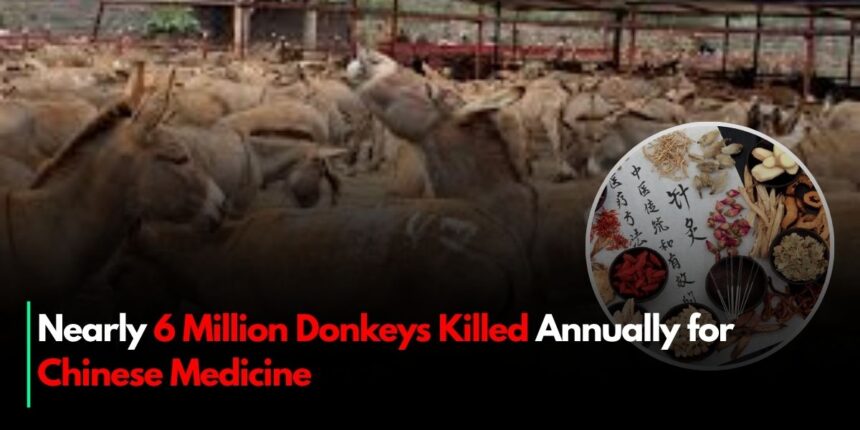There is a tragic global problem going on because there is a huge demand for ejiao, a gelatin manufactured from donkey hides that is highly valued in traditional Chinese medicine. For this reason, some 5.9 to 6 million donkeys are killed every year, which reduces the number of donkeys in China, Africa, and other places.
When the culture of the Quando meets a conservation crisis
Ejiao has been around for around 3,000 years, but modern media and health trends have helped it become popular again. A popular Chinese TV show brought back interest in its supposed benefits, which range from better circulation to healthier skin. Ejiao has gone from being a niche product to a $6–7.8 billion global industry thanks to its popularity in the health and wellness markets.
The effect on donkey populations has been terrible. China’s donkey population has dropped from 11 million in the early 1990s to less than 2 million presently. Because of this, demand has moved to Africa, which is home to nearly two-thirds of the world’s donkeys.
When Traditions and Jobs Don’t Get Along
In rural parts of Africa and Asia, donkeys are more than just animals; they are lifelines. They are very important for getting water, firewood, and supplies to people, and they are also important for supporting families, especially women and children. Their numbers are going down, which has real-world effects: girls may have to drop out of school, women may have to work long hours, and families may lose steady sources of money.
Reports from Kenya, Nigeria, Tanzania, and South Africa show that robbers often steal donkeys to use their hides. Some donkeys are killed at night in faraway places, and their hides are sent to other countries.
Welfare: Between Making Money and Keeping Safe
Animal rights groups call the transaction “a disaster for animal welfare.” The Donkey Sanctuary says that horrible things happen, such transporting too many animals at once and killing them in terrible conditions.
Experts say that some disadvantaged communities are in really bad shape when they have to sell their lone donkey to feed their family.
The governments are starting to act. In 2024, an African Union grave-alliance put a stop to all donkey skin exports across the continent. Brazil is getting ready to follow suit and outlaw killing donkeys for their hides. These legal actions may slow down a trade that is still going strong on underground markets, but they won’t stop it.
Looking for long-term answers
The BBC writes on some good news: biotech companies say they can now make the collagen found in donkey hide in a lab, which is a cruelty-free option. If it works and can be scaled up, this new idea might hurt the ejiao supply chain and move the industry away from killing animals.
But creativity isn’t enough to bring about change. Cultural beliefs are what make people use ejiao. Professor Johnston says that synthetic alternatives alone may not stop the illegal trade without similar measures in policing, awareness, and enforcement.
Global Dimensions of a Hidden Crisis
This is more than a case of dwindling fauna. By requiring millions of donkey hides, rich markets are jeopardising food security and local economies in remote locations. The trade illustrates modern consumer culture’s reach—even against some of the most humble animals on earth theguardian.
Bottom Line
The slaughter of roughly six million donkeys each year for ejiao is a far-reaching humanitarian and environmental emergency. It advocates for rapid action—through bans, alternatives, and enforcement. Without it, rural populations risk losing one of their most vital tools for survival.








